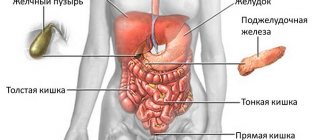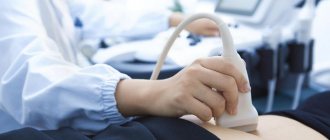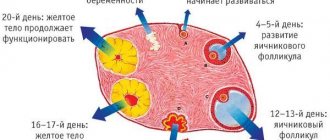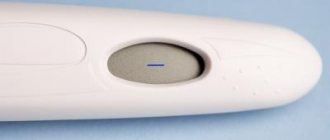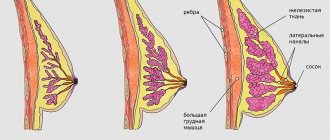No menstrual test negative reasons for lower back pain
Female representatives often face a problem when the onset of menstruation is delayed and the lower back hurts greatly. Most often, this condition indicates the onset of pregnancy. However, when there is a delay in menstruation and lower back pain, this is not always associated with expecting a child. In rare cases, if a disruption of a previously normally occurring cycle affects a large number of days, and the pregnancy test is negative, then we can talk about the beginning of the development of a pathological process.
retention, frequent urination
Now I dug it up on one site. In the last cycle, it seemed that they were practically all there, but in the end they came M((( Maybe someone else had signs that are not here?
Pregnancy causes many changes in the female body, starting from the first days after conception. In this case, a positive pregnancy test result only confirms all the feelings and assumptions of the pregnant woman.
Early signs of pregnancy before a missed period are not pronounced, since hormonal levels are just beginning to change.
Sometimes after fertilization of the egg, a woman may notice the following primary signs:
- swelling of the hands and feet;
- frequent urination;
- bloating;
- low pressure;
- increased appetite;
- changes in appearance.
Only by carefully monitoring your body can you see signs of pregnancy even before your menstrual cycle is delayed.
Possible signs of pregnancy
Women who want to get pregnant are wondering what sign of pregnancy before a delay will help them know about successful conception? But experts say that in such an early period it is impossible to find reliable symptoms that could indicate fertilization of the egg and its implantation into the uterine wall.
Women can only consider some changes in their body as a possible pregnancy.
A few days after conception, the arms and legs may swell slightly, which is caused by the retention of salts in the body under the influence of progesterone. Some pregnant women experience so much swelling in their lower extremities that they cannot stand on their feet for a long time.
An increase in hormonal levels causes a rush of blood to the pelvic organs. During this period, the expectant mother often feels heaviness in her stomach. In addition, the functioning of the organs of the urinary system—the bladder, kidneys, and ureters—changes.
A pregnant woman begins to go to the toilet more often both at night and during the day. At the same time, you should know that frequent urination, as a sign of delay, should not be accompanied by painful sensations that are inherent in cystitis.
Changes in appearance
Changes in hormone levels affect not only the well-being of the expectant mother, but also her psycho-emotional state. At this time, frequent mood swings, causeless apathy and tearfulness may occur. In addition, certain changes often occur in the appearance of a pregnant woman.
After pregnancy, a woman may see the following changes in her appearance:
- pigmentation on the face;
- increased growth of unwanted hair;
- stretch marks;
- enlarged pores, acne, pimples.
To prevent these changes in a woman’s appearance from causing discomfort during pregnancy, it is recommended to use cosmetics and care products aimed at combating cosmetic problems. A pregnant woman should know what products can be used so as not to harm the baby.
Weight gain is an inevitable and obligatory change during pregnancy. Due to the heavy load on the legs, varicose veins may appear on the lower extremities, so during the period of bearing a child, a woman needs a full, long rest.
Severe toxicosis can suppress appetite, but, as a rule, with the onset of pregnancy, a woman notices that she begins to be bothered by a constant feeling of hunger. A good appetite arises as the body needs additional nutrients.
During this period, you should eat not only for the purpose of satiation, but you should also not forget about the benefits of food for a growing body. Knowing the possible signs in the early stages of bearing a child, when there is no delay yet, a woman will be ready for a positive test result with the onset of her second pregnancy.
After the fertilized egg attaches to the wall of the uterus, the functionality of the intestines changes, its activity slows down, and flatulence occurs. This sign of pregnancy before the delay is noticed extremely rarely, since many do not even know about this impact of the process of implantation of a fertilized egg on the woman’s body.
Do not forget about such possible primary signs of pregnancy before delay, such as:
- decreased blood pressure;
- slight bleeding;
- nausea and vomiting;
- headache;
- increased salivation.
It is possible to assume that conception has occurred if several of these symptoms are combined. It will be possible to confirm a woman’s assumptions if her period is delayed, as well as with the help of hCG analysis.
Delayed menstruation and lower back pain
Most often, periods are delayed in young people whose menstrual cycle is just forming in their bodies. If spotting appears after a couple of days of the planned date, then this is considered normal. If menstruation is delayed, the lower abdomen is tight, and discomfort occurs in the lumbar region, then all this may be a signal of an ectopic pregnancy. This pathological condition is extremely dangerous for any female. Because of this, internal bleeding may begin, which, if assistance is not provided in a timely manner, can cause death.
When, along with a delay in menstruation, a strong tugging begins on the lower right side, this indicates an ectopic pregnancy. This pathology is often associated with ongoing infectious inflammation (adnexitis, salpingoophoritis or endometritis).
Another reason why there is a violation of the internal system of the body, causing cycle failure and lumbar pain, is the development of endometriosis or a previous ectopic pregnancy, which has its own complications. Then menstruation may not occur within six days from the day when the woman expects their arrival. In this case, a regular pregnancy test may give a negative answer, but a blood test will show a positive result. Often this state of the body is accompanied by very scanty discharge, which can be seen on underwear.
Early pregnancy symptoms
Conception brings many changes to a woman’s body; developing pregnancy stimulates the restructuring of many systems and this affects the appearance of the first signs of pregnancy:
- 1-4 weeks – slight pain in the lower abdomen and spotting;
- Week 4 – no menstruation;
- 4-5 weeks – fatigue;
- 4-6 weeks – nausea and vomiting;
- 4-6 weeks – breast swelling;
- 4-6 weeks – frequent urination;
- 4-6 weeks – constipation and bloating;
- 5-6 weeks – dizziness when moving;
- Week 6 – mood swings;
- Week 6 – temperature changes;
- Week 8 – high blood pressure.
Frequent urination
This symptom appears in the middle of the first trimester. A woman may feel a constant need to urinate even if her bladder is not full. This leads to constant running to the toilet, involuntary release of small amounts of liquid during laughter, coughing, sneezing, etc.
Although frequent urination is normal and at the first stage is again associated with hormonal changes, the symptom can be alleviated. Try to drink less coffee, tea and other diuretic drinks to avoid the constant urge to empty your bladder.
But you shouldn’t reduce the amount of water you drink, thinking that this will help get out of the situation. In any case, liquid is necessary for the health and normal development of the child, and this approach can lead to dehydration.
You should also pay attention to how you feel when urinating. Perhaps the reason is completely different. You should immediately consult a doctor if urination is accompanied by the following symptoms:
- burning;
- pain and discomfort;
- blood in urine.
Such signs may indicate diseases of the excretory system. And untimely seeking help from a specialist sometimes ends in miscarriage.
Constipation
Pregnancy is often accompanied by problems with bowel movements. This is primarily affected by the level of progesterone in the body; the intestines push food through more slowly due to relaxed muscles of its walls, which leads to frequent constipation. Also, this symptom may appear in connection with the use of vitamin complexes and iron.
To make bowel movements easier, include fiber-rich foods, plenty of water, and exercise. Charging directly affects the mechanical processing of food.
Signs of pregnancy with missed periods
When there is a delay in menstruation, but at the same time the lower back is pulled, the following signs indicate the onset of pregnancy:
- change in skin color;
- muscle cramps of the lower leg;
- irregular bowel movements and regular bloating;
- a feeling of nausea that torments a woman in the morning;
- frequent urination (this is explained by the enlargement of the uterus, which is preparing for the growth of the fetus and puts pressure on the bladder);
- changes in taste habits and preferences, when you suddenly crave foods that previously rarely appeared on the dinner table;
- increased sense of smell.
Lower back pain that occurs during a period of late menstruation and is accompanied by the described symptoms indicates pregnancy. Additionally, the woman experiences increased salivation. Fluid in the mouth is released not only when eating, but throughout the day. Pigmentation of the entire skin appears. A dark stripe appears at the bottom of the abdomen. Spots may be seen on the face, legs and arms. You feel physically weak, you constantly want to sleep, and all the body’s reactions are a little slowed down. And this happens due to the fact that a restructuring of the hormonal system occurs inside. And this requires a lot of energy. Hormone fluctuations lead to constant mood changes. It is not surprising that a woman can suddenly cry and become nervous. So if there is a delay in menstruation, pain in the lumbar region and the woman notices one of the additional signs, then we can assume that pregnancy has occurred.
Painful spasms in the lower back when a woman is expecting a baby are associated with weight gain. Extra pounds increase the load placed on the lumbar region, which provokes noticeable discomfort in this area.
Headache as a sign of pregnancy: before pregnancy, in the early stages
Pregnancy from the very first week leaves its mark on a woman’s condition. After the fertilized egg attaches to the wall of the uterus, hormonal changes begin in the woman’s body.
They manifest themselves with certain symptoms that can be used to diagnose pregnancy at an early stage.
How does conception occur?
The most favorable time for conception is the period of ovulation, which occurs in the middle of the menstrual cycle. Ovulation occurs when the follicle ruptures and an egg ready for fertilization is released.
If for some reason there is a disruption in the menstrual cycle, the timing of ovulation may shift and conception may occur earlier or later than the middle of the cycle.
The mature egg enters the fallopian tube, which contains sperm. The most active of them penetrates the membrane of the egg and fertilizes it. Then it begins to move towards the uterine cavity. Along the way, the egg divides and by the time it enters the uterus it turns into a fertilized egg, consisting of several hundred cells.
Implantation of the fertilized egg occurs 7-10 days after ovulation.
After entering the uterus, the fertilized egg does not immediately attach to its wall, but remains in a “suspended” state for 2 days. During this time, progesterone prepares the surface of the uterus for implantation by relaxing its tissue. This is necessary so that the walls of the uterus do not reject the foreign body.
More often, attachment occurs to the posterior wall of the uterus, since it is thicker, many vessels are concentrated in it, and better conditions are created for the development of the embryo.
Implantation may fail for a number of reasons:
- hormonal imbalance (change in the concentration of progesterone, estrogen, glucorticosteroids, prolactin, etc.);
- unpreparedness of the endometrium (uterine mucosa) for implantation. The thickness of the endometrium for successful attachment of the fertilized egg must be at least 7 mm;
- fibroids (benign tumor) of the uterus.
If the fertilized egg fails to implant, menstruation will begin and it will leave the uterus along with the menstrual flow.
Hormonal changes after implantation
After the implantation of the fertilized egg, the active work of the body begins, aimed at the proper development of the child.
A woman faces hormonal changes, which affect the functioning of all body systems.
At the site of the burst follicle, a corpus luteum appears - this is a temporary formation responsible for the production of progesterone.
Progesterone is a hormone necessary for the implantation of a fertilized egg and the normal development of pregnancy. Disruption of the corpus luteum can lead to miscarriage or non-developing pregnancy.
During the division of a fertilized egg, the rudiments of the future embryo and membranes (chorion) appear. The chorion produces a special hormone - human chorionic gonadotropin (hCG).
Based on the presence of this hormone in the blood, pregnancy can be predicted with a high degree of probability. In rare cases, an increase in hCG levels is not associated with pregnancy, but with certain diseases.
Subjective first signs before delay
The first signs of pregnancy before a delay are based on the woman’s feelings.
They are characteristic of pregnancy, but their severity may vary: in some women they appear more strongly, in others they are absent altogether. Moreover, it does not matter whether it is the first, second or third pregnancy, any woman can feel early signs of pregnancy, regardless of age, nationality, social status, etc.
Even before your period is missed, the first sign of pregnancy may be chest pain. They appear at 1-2 weeks of pregnancy.
The breasts swell, become more sensitive, any touch causes pain.
The initial sign of pregnancy before the delay may be increased pigmentation of the nipples. This symptom does not always appear; in some cases, women do not feel any discomfort in the chest.
Another, so to speak, popular sign of pregnancy can be slight bleeding from the genital tract.
The process of attachment of the egg to the wall of the uterus may be accompanied by implantation bleeding - slight spotting.
A woman may mistake it for premenstrual discharge. They can last from several hours to days.
Changed hormonal levels cause a decrease in blood pressure, which causes apathy, loss of strength and drowsiness.
Such early signs of pregnancy can accompany a woman throughout the entire first trimester of pregnancy. To these are added changes in the emotional state of the pregnant woman: tearfulness, irritability and anxiety appear.
Many women are concerned about the malaise characteristic of colds: headache, feeling of weakness, nasal discharge, slight increase in temperature.
If a woman consults a doctor about an illness, she needs to inform him about the possibility of conception.
This will allow the doctor to select drugs that are safe in the early stages of pregnancy.
Accelerated blood circulation in the pelvic organs and changes in kidney function cause increased urination. If it is accompanied by a pulling or cutting pain, you should immediately consult a doctor. In this case, frequent urination may be a sign of the development of a genitourinary tract infection.
During pregnancy, blood flow to the pelvic organs increases and the uterus begins to grow.
An increase in the size of the uterus may be accompanied by a feeling of “fullness” in the abdomen, pain and tingling in the uterine area.
The primary sign of pregnancy before the delay may be diarrhea.
Diarrhea is not infectious and goes away quickly. In this way, the body reacts to the stress caused by pregnancy.
Don't worry about this - after a while the stool will be restored. According to statistics, local gastrointestinal disorders in 65% of cases are obvious signs of pregnancy before the delay.
Looseness of the cervix, decreased turgor of the vaginal muscles. This is due to the action of progesterone, which helps relax muscle tissue.
Without waiting for an examination by a gynecologist, you can conduct a self-examination: insert a finger into the vagina and evaluate muscle tone. When palpated, in the event of pregnancy, the muscles will seem “boiled.”
Unusual signs of pregnancy include changes in taste preferences, excessive tearfulness, flatulence, heartburn, and decreased visual acuity.
Despite the abundance of signs that indirectly indicate pregnancy, a woman in the early stages may not experience any signs at all other than a delay.
Objective signs of pregnancy before delay
One of the reliable signs of pregnancy before the delay is considered to be an increase in basal temperature (temperature in the rectum) above 37 ° C.
The obtained measurement results may be correct if certain conditions are met.
Basal temperature is measured in the morning, immediately after waking up, without getting out of bed. Before this, the woman must lie down for at least 6 hours.
You cannot take measurements earlier than 2 hours after sexual intercourse, as the results will be incorrect.
The onset of pregnancy can be judged by the level of the hCG hormone. At home, its level in urine is determined using special tests.
In early pregnancy, a second faint line may appear on the test. In this case, it is necessary to repeat the tests over several days and monitor the change in the brightness of the stripes.
If the pregnancy is short, home tests may give a false negative result, that is, implantation has already occurred, but the level of hCG is still insufficient to detect it in the urine.
To ensure correct results in the early stages, it is better to use types of tests that are more sensitive to the hCG hormone with a sensitivity of 10 mIU/ml.
A false negative result can also occur for other reasons:
- the test was spoiled or expired;
- it was not the morning portion of urine that was used;
- on the eve of the test, the woman drank a lot of liquid or took diuretics;
- kidney disease;
- ectopic pregnancy in the early stages.
If you suspect pregnancy, but a home test shows a negative result, a blood test is necessary.
HCG is detected in it earlier than in urine. Blood for analysis is taken from a vein, the analysis is given in the morning on an empty stomach or 4-5 hours after a meal at another time of day.
To confirm the result, it is necessary to take hCG over time. In the case of a normal intrauterine pregnancy, the level of the hCG hormone in the blood will constantly increase.
After the first signs of pregnancy appear, you must wait until your menstrual cycle is delayed and consult a doctor.
He will prescribe an ultrasound, which will clearly establish the fact of pregnancy and determine its development (uterine, ectopic, developing or frozen pregnancy).
Source:
Can a headache be one of the signs of pregnancy?
After conception, every woman carefully monitors her well-being and waits for the first signs of pregnancy to appear. However, not everyone knows exactly what symptoms indicate successful fertilization.
Some people wonder whether a headache could be a sign of pregnancy, and what exactly it means. It is also important to understand how to behave if an unpleasant symptom occurs in the first month after conception.
It is useful to understand how to perceive a headache, as well as what ways you can combat it.
Can headaches indicate pregnancy?
There are many symptoms that indicate that a woman will soon become a mother. This is evidenced by increased breast sensitivity, general malaise, changes in body temperature and strange sensations in the lower abdomen. In some cases, a headache appears, which is quite often observed in pregnant women in the early stages.
Approximately 75% of expectant mothers complain that they had discomfort in the head for some time after fertilization.
However, not in all cases such a symptom indicates that a woman has a pathology. Quite often, unpleasant sensations are caused by hormonal changes in the body.
The symptom can occur at any time, and most often it appears in the first trimester.
Main reasons:
- The pregnant woman’s usual lifestyle has changed dramatically. This is what can lead to vasospasm. It is quite possible that during this period you often have to be in stressful situations, which also has an adverse effect on the body.
- In the first and second months of pregnancy, the gastrointestinal tract is often upset, which leads to insomnia. The expectant mother may try to support her body with coffee or strong tea, which causes pain in the head.
- Significant loss of fluid during pregnancy. This condition is due to the fact that the functioning of the circulatory system changes. In this case, hypoglycemia often occurs.
- Hormonal changes. A significant amount of estrogens, as well as progesterone, are released into the body. This is what leads to vascular spasm. A woman may become deprived of oxygen, a condition that often leads to migraines.
The possibility of pathology should not be ruled out, but it is important to understand that many diseases can negatively affect the unborn child. For example, if a woman's blood pressure increases significantly, this can lead to cerebral edema. Naturally, it is important to prevent this condition in order to maintain pregnancy and not worsen your health.
Possible diseases
As already mentioned, in some cases, migraines may appear due to the fact that the expectant mother suffers from specific diseases. In particular, they can be suspected in cases where a woman has to suffer from significant negative symptoms. In this case, not only discomfort in the head may be observed, but also other pathological signs.
What diseases can provoke discomfort in the skull:
- Acute as well as chronic processes in the brain. It is possible that the woman suffered meningitis or had a traumatic brain injury. A jump in intracranial pressure, cysts and tumors of various types are also possible. To weed out these pathologies, you will need to undergo professional diagnostics. Doctors may order tests that are allowed for women in the early stages of pregnancy.
- Withdrawal syndrome. It may be due to the fact that the girl abruptly stopped drinking alcoholic beverages, quit smoking, or took strong medications in the period after conception.
- Neuralgia. If signs of this pathology appeared before pregnancy, then during pregnancy they may intensify.
- Hormonal abnormalities in a woman’s body. They may be associated with fertilization, but it cannot be ruled out that the problem could have existed even before pregnancy. It should be understood that many congenital pathologies manifest themselves during pregnancy.
That is why, with intense pain in the head, it is important to make sure that there are no serious diseases. They harm not only the woman herself, but also the unborn child. If possible, treatment should be started that will be aimed at eliminating the specific problem.
Causes of migraine
It is migraine that can disturb the expectant mother in the early stages of pregnancy. This problem is explained by high intracranial pressure, which arose due to metabolic disorders in the brain. The pathology is quite easy to distinguish from a regular headache, because there are characteristic signs.
Source: https://bee-zness.ru/prichiny/golovnaya-bol-kak-priznak-beremennosti-do-zaderzhki-na-rannih-srokah.html
First aid
It is not recommended to provoke the onset of bleeding on your own; there are many recipes for this. This can have a detrimental effect on your health. Before consulting a doctor, you can relieve unpleasant symptoms with the help of antispasmodics. The ideal option is Drotaverin (No-shpa), Spazmalgon, Spazgan, Baralgetas, Baralgin. You can put cold on the lower abdomen, take a comfortable position in which pain is least manifested. If your condition suddenly worsens, it is recommended to call an ambulance. Be sure to watch the video on the topic
In its absence, you need to find out what exactly triggered the amenorrhea. Doctors believe that 5-7 days of delay are not a critical indicator. However, if there is no menstruation on the 40th day of the cycle, a diagnosis is needed. Do not attribute all symptoms to nerves and stress. This can lead to inflammation and even cancer. Early diagnosis is the key to health.
It is not recommended to provoke the onset of bleeding on your own; there are many recipes for this. This can have a detrimental effect on your health. Before consulting a doctor, you can relieve unpleasant symptoms with the help of antispasmodics. The ideal option is Drotaverin (No-shpa), Spazmalgon, Spazgan, Baralgetas, Baralgin. You can put cold on the lower abdomen, take a comfortable position in which pain is least manifested. If your condition suddenly worsens, it is recommended to call an ambulance.
Be sure to watch the video on the topic
Delayed menstruation in the absence of pregnancy
Sometimes, in the absence of menstruation, the lower back is pulled even without pregnancy. Then the presence of discomfort in the lumbar region indicates the following ailments:
- the occurrence of inflammatory processes in genital organs such as the ovaries;
- disorders associated with reproductive function;
- polycystic disease;
- disorders of the thyroid gland;
- the presence of benign and malignant neoplasms.
A pulling sensation in the lower back with a delay in menstruation signals the body about a deterioration in the activity of the adrenal glands. And this gradually leads to serious disruptions in the functioning of the ovaries.
Delayed menstruation with spasms in the lower back can be caused by severe physical or mental stress. Often such a disorder of the body occurs when significant stress has occurred.
In rare cases, pain in the lower back with a concomitant absence of menstruation can be caused by climate change. This phenomenon also often appears among representatives of the fairer sex who seriously engage in sports with weight lifting.
Causes
- Inflammation. In particular, any organ can be affected, from the ovaries to the kidneys;
- Problems with the thyroid gland;
- Polycystic. The presence of several cysts, due to which menstruation ceases to be regular, increases the risk of infertility;
- Tumors in the genital tract;
- Stress and other factors;
- Pregnancy.
Sometimes, as a result of stress, periods are different; cortisol destroys the walls long before the due date. Therefore, in fact, menstruation passes, but without discharge. And as a result, girls often have complexes about this.
If this happens once, then it’s not critical, you just need to get rid of stress and get tested just in case. But if this repeats from month to month, or even worse, the delay reaches the critical 8 days, you need to urgently run to the doctor.
Possible gynecological diseases
A delay in menstruation, when the test is negative and during this period the lower abdomen and lower back are pulled, can occur against the background of developing infectious diseases. This:
- vaginitis and oophoritis;
- endometritis and apoplexy;
- salpingoophoritis and adnexitis.
In all the described cases, the woman complains that her lower abdomen hurts. The onset of menstruation is delayed by about five days. Sometimes you may notice a discharge and a noticeable itching of the labia. When urinating and during sexual relations, the girl encounters unpleasant sensations, which can be quite painful. And all this indicates that an inflammatory process is occurring inside the body, the provoking factor of which is often a sexually transmitted infection.
If vaginitis develops, then inflammation of the vaginal walls occurs. The pain becomes extremely intense. It is localized in the lumbar region and extends down the abdomen. Sometimes moderate itching is felt in the genital area.
Adnexit
With adnexitis, inflammation occurs in the ovaries and uterine tubes. The pain is not as strong and more of a nagging nature. There are no special signs during the course of this disease. But a delay in menstruation can also occur by one day or a little more. The difficulty in identifying this particular disease lies in the fact that in the absence of any pronounced symptoms, it is poorly diagnosed, and more often this happens when the disease takes on an advanced form. And then you can forget about the regular menstrual cycle for a while, since your periods simply disappear. And this is subsequently fraught with infertility.
Endometritis affects the lining of the uterus. And the more internal inflammation begins to develop, the more noticeable the pain in the lower abdomen, spine and lower back becomes. Sometimes this disease causes bleeding. Painful lumbar sensations and delayed menstruation are sometimes provoked by a sexually transmitted anomaly. Very often, this disease occurs during the course of candidiasis, mycoplasmosis or chlamydia.
Menstrual migraine – main characteristic
Migraine, the occurrence of which is associated with the period of menstruation (headache during menstruation - on the first or any subsequent day, immediately before and immediately after the end of menstruation) is called menstrual. With minimal exceptions, we are talking about migraine without aura.
The pathophysiology of the disease is very complex, and there are a number of hypotheses that try to explain why headaches occur during, before or after menstruation.
. These include low or high progesterone levels, low or high estrogen levels, sudden drops in estrogen levels, high estrogen to progesterone ratios, low or high prolactin levels, increased prostaglandin release, magnesium or vitamin deficiencies, changes in immunological parameters, and much more.
If there is a delay and it can be said that the head hurts during pregnancy, the reason, most often, lies in the sudden imbalance of hormones that prepare the body for its natural role.
The first accurate description of menstrual migraine was submitted in 1660 by J. A. van der Linden. In his work, he describes attacks of the Marquise of Brandenburg, accompanied by nausea and vomiting.
More than 50% of women point to the timing of their period as a migraine trigger. The International Classification of Headaches defines 2 subtypes of the disease.
1. True menstrual migraine. It is defined as a condition in which the headache occurs exclusively on the 1st day of menstruation plus 2 days before and 2 days after this date (5 days in total), for at least 2-3 cycles in a row.
What treatment
After diagnosis and clarification of the disease, treatment of pain and delayed menstruation is carried out as prescribed by the gynecologist.
There are a number of nuances in treatment
Before contacting a medical facility, a woman can independently perform a number of measures to help eliminate negative symptoms. These include:
- taking antispasmodics (No-shpa, Spazoverin, Spazmalgon);
- eating healthy foods, avoiding spicy, fatty, smoked, fried foods, as well as ice cream and carbonated drinks;
- rejection of bad habits.
A timely response to the development of negative manifestations will protect the female body from health problems, maintain good health and good mood.
Pathologies of the genitourinary system
In rare cases, it happens when a representative of the fairer sex faces a delay of more than 10 days. Spasms that occur in the abdomen radiate to one of the areas of the lower back. Then we can talk about pyelonephritis, cystitis and other diseases of the reproductive system.
With a normal inflammatory process, menstruation may be delayed by three or four days. This state of the body can be recognized by a high body temperature, which rises sharply, given that otherwise the woman feels quite normal. And if the inflammation is not treated on time, then the female representative will face discomfort in the abdominal area, severe itching of the labia and a burning sensation.
All inflammations of the reproductive and urinary systems provoke pain in the pelvic organs, which are often transmitted to the lumbar region. Painful sensations can be either long-lasting and aching, or short-term and acute. And in this case, you need to immediately contact a gynecologist. Indeed, in some cases, such symptoms may indicate an ectopic pregnancy and a number of inflammatory diseases.
Ectopic pregnancy tests negative
Neoplasms that accompany impaired blood flow from the uterus
In the case when the uterus occupies an incorrect anatomical position, there is a high probability of its unstable functioning, which manifests itself in the form of absence of menstruation, as well as acute pain in the lower back and groin.
There are three main positions of the uterus:
- Retroflexion is a backward deviation of the uterine body, which causes an increased impact on the nerve endings, causing discomfort.
- Hyperanteflexia is a pathology in which atrophy of the muscles of the uterus occurs when it shifts and “sits” deep in the abdominal cavity.
- Uterine prolapse is the displacement of organs outside the vagina, which is accompanied by constant pain and the inability to live fully.
Filimoshin Oleg Alexandrovich
Uterine prolapse is the end result of gradual displacement of the organ, as a result of which the anatomical position of all pelvic organs is disrupted.
Type of pain The pain is aching, pulling, constant. It intensifies during sudden movements, prolonged sitting and physical activity. Localization The pain is localized in the lower groin and perineum, radiating to the lower back. Diagnosis The woman herself may feel that the uterus is much lower than it should be. There is a feeling of a foreign body in the vagina, as well as its protrusion outside the vagina.
The pathology is diagnosed during a routine medical examination in a gynecological chair. To assess the entire situation, an ultrasound of the pelvic organs will be required. If you had breast pain before this condition, a mammogram is required. Treatment Since displacement of the genital organ occurs as a result of weakening of the ligamentous apparatus, the only option to solve the problem is surgical intervention.
Drug therapy may include medications such as:
- Anti-inflammatory drugs.
- Analgesics.
- Antibacterial therapy.
To normalize stool and reduce the likelihood of constipation, herbal laxatives are used.
A conservative method of treating abnormal position of the uterus and protrusion of the organ outside the vagina is the installation of special elastic rings. Pessaries are placed in the vagina, supporting and preventing the internal genital organs from coming out.
Any neoplasms in the uterus and beyond, even if they are benign in nature, can provoke a violation of the outflow of lymph, which contributes to the formation of stagnant processes. Benign neoplasms, which are formed from epithelial cells, are not prone to metastasis, have clear contours and do not pose a particular threat to life, are:
- Uterine fibroids are formed from myometrial cells.
- Fibroma is formed from connective tissue.
- Fibromyoma is a neoplasm created from connective tissue and smooth muscle cells.
- Cervical polyp - has a leg and body, reaches large sizes.
Type of pain The pain is constant, aching, with a period of exacerbation. Accompanied by the appearance of bloody or purulent discharge from the vagina. Localization Discomfort in the lumbar region, groin and perineum. Diagnosis The presence of neoplasms can be determined using diagnostic measures such as:
- Examination of the cervix using gynecological speculum.
- Ultrasound diagnostics of internal genital organs.
- Colposcopy.
- Biopsy of uterine cells.
- Cytology and histology of smear.
Treatment Treatment of a benign tumor is carried out in three stages:
- Removal of the existing tumor.
- Containment therapy is aimed at preventing further growth of tumor cells.
- Using hormonal therapy to reduce the chances of relapse.
The fight against cancer is much more difficult and not always effective. A favorable prognosis directly depends on the stage, location and presence of metastases in neighboring tissues. At the initial stage, the uterus is completely removed, after which chemotherapy is used to destroy metastases throughout the body. Maintenance therapy is aimed at normalizing the functioning of all organs and systems that become disrupted due to the effects of chemistry.
The pain is aching, nagging, constant. Intensifies during sudden movements, prolonged sitting and physical activity.
The pain is localized in the lower groin and perineum, radiating to the lower back.
The woman herself may feel that the uterus is much lower than it should be. There is a feeling of a foreign body in the vagina, as well as its protrusion outside the vagina. The pathology is diagnosed during a routine medical examination in a gynecological chair. To assess the entire situation, an ultrasound of the pelvic organs will be required. If you have had breast pain before this condition, a mammogram is required.
Since displacement of the genital organ occurs as a result of weakening of the ligamentous apparatus, the only option to solve the problem is surgical intervention.
The pain is constant, aching, with periods of exacerbation. Accompanied by the appearance of bloody or purulent discharge from the vagina.
Discomfort in the lumbar region, groin and perineum.
Gynecological problems
Diseases of a woman's reproductive organs often cause retention and the accompanying frequent urge to urinate. Among them is polycystic ovarian disease, in which growing follicles fill with fluid and turn into cysts, putting pressure on the bladder. And hormonal shifts contribute to delays in menstruation.
After a mature egg leaves the follicle, the corpus luteum begins to form, in which progesterone is actively synthesized. This formation can also accumulate fluid and transform into a cyst, which causes retention and frequent urination.
An ectopic pregnancy occurs due to the fact that the fertilized egg is not implanted in the uterine mucosa, but is attached to the fallopian tube or to the isthmus of the tube. A woman experiences all the symptoms of pregnancy associated with hormonal changes, including increased urination. But the growth of the fertilized egg can lead to pipe rupture. This condition is extremely dangerous for a woman’s life and requires immediate attention to the hospital.
Sometimes the fertilized egg is pushed into the abdominal cavity (without rupture of the tube), during which the woman feels pressure in the lower abdomen, frequent urge to urinate, and paroxysmal pain in the iliac region. Nausea, vomiting, and hiccups may occur.
Frequent, painful urination should be a reason to visit a doctor. After all, it may be caused by one of the sexually transmitted diseases. These include chlamydia, trichomoniasis, mycoplasmosis, syphilis and gonorrhea. Their symptoms also include:
- yellow-green or bloody discharge;
- pain in the lower abdomen;
- pus from the urethra.
The kidneys, being the main organ of the excretory system, are sensitive to changes in fat, protein and carbohydrate metabolism in the body. Therefore, fluctuations in a woman’s body weight, downward or upward, are reflected in their work and frequency of urination.
Malfunctions in the gastrointestinal tract system
Failure of the menstrual cycle can be caused by the development of diseases of the intestinal and gastric tract. There is pain in the back, in its lower part. This is due to severe inflammation of the intestinal walls. Sometimes the disorder is associated with inflammation of the appendix. At this moment, a woman may experience a pulling sensation on the right side of her abdomen. In such a situation, it is quite dangerous to resort to the help of analgesics, trying to dull and reduce the pain. This cannot be done, otherwise you may face serious consequences.
In rare cases, the delay, accompanied by sharp and severe lumbar pain, is associated with the growth of an oncological tumor in the stomach. When it comes to disorders of the gastric or intestinal tract, the woman feels nauseous, vomits, and upset stools.
If the lower back has been hurting for some time, and menstruation has not arrived at the expected time, a woman should take this malfunction of her body very seriously. First of all, it wouldn’t hurt to take a pregnancy test to rule out this possibility. If the test shows a negative result and the lower back pain does not stop, it’s time to visit a gynecologist.
The specialist will conduct an examination and prescribe a series of tests that will help identify the causes of such a disorder of one’s own internal system. And, of course, you need to be careful about the accompanying symptoms that arise during a delay in menstruation. Many signs themselves will tell you what kind of illness we are talking about.
Signs of pregnancy in the first days
TOP 10 very first signs of pregnancy in the early stages:
- 1) Lack of menstruation;
- 2) Pain in the lower back or lower abdomen;
- 3) Increase in basal temperature;
- 4) Toxemia/morning sickness;
- 5) Soreness and breast enlargement;
- 6) Frequent urge to urinate;
- 7) Changes in taste preferences, increased sensitivity to smells;
 Fatigue and drowsiness, mood swings.
Fatigue and drowsiness, mood swings.- 9) Implantation bleeding
- 10) Other symptoms
Let's take a closer look at each of the symptoms; you can also read more than 100 reviews from women in the comments, or leave your own.
Increase in basal temperature
Many women have encountered in their lives the need to measure their basal temperature. It makes it possible to determine the time of ovulation. That is, days when there is an increased risk of getting pregnant. The basal temperature remains high throughout the luteal phase, that is, the time before ovulation.
An increase in basal temperature during a missed period can be considered the first sign of pregnancy in the early stages. This temperature is measured using an ordinary thermometer; it measures the temperature in the rectum. It is important to measure your BBT as soon as you wake up and are still in bed.
If you see a temperature of more than 37 degrees Celsius on the thermometer, then you can safely suspect pregnancy. If conception does not occur, the basal temperature drops, and menstruation occurs at the scheduled time.
Lack of menstruation
Women perceive the absence of menstruation on time as the first sign of pregnancy. However, the delay is not always due to this. Any illness or stress can change hormonal levels. It even happens that in the first stages a girl notices menstruation. This bleeding, which occurs in the first stage of pregnancy, often differs from standard periods in its shade and amount of discharge.
The first indicators are when menstruation has decreased too much and menstruation has ended faster. If you had unprotected sexual intercourse, most likely with 50% accuracy you can call such menstruation the beginning of pregnancy. Again, if other hormonal changes have occurred in a woman’s body, such scanty periods may be an understandable sign.
Nausea and vomiting
The majority of women experience nausea in the morning and poor health as the first sign of a new condition. But such symptoms also occur with poisoning, gastrointestinal and liver diseases. During pregnancy, nausea occurs mainly in the morning, although manifestations are possible during the day due to a sharp decrease in blood sugar levels.
Toxicosis in the early stages occurs due to the fact that the body wants to get rid of harmful substances. In the second trimester, toxicosis is a concern due to the female body’s need to get rid of the “foreign organism.” Some patients suffer from toxicosis throughout their pregnancy. This is the so-called psychological toxicosis.
Note that some patients who really want to get pregnant, as well as those who are pathologically afraid of a new condition, report nausea in the morning. But in reality, new life has not yet arisen.
Changes in taste preferences, change in taste
You may notice rising hormone levels by a metallic taste in your mouth. Your usual taste for food may change. You will be drawn to unusual products.
However, this symptom often appears at a later date.
Breast pain and enlargement
During the beginning of the birth of a new life, the mammary glands prepare for lactation. The breasts become rough, the woman feels pain. The nipples often darken and become more sensitive. Sometimes the veins become more noticeable, and the areolas around the breasts become larger. Some pregnant women notice an increase in bumps on the areola.
A clear sign is colostrum or yellowish discharge from the nipples. However, the symptoms are purely individual, and a pregnant patient probably does not notice any of them!
Frequent urge to urinate
A week after implantation, some people notice more frequent trips to the toilet. This occurs due to the release of the hormone hCG. It is this that provokes an increase in blood supply to the pelvic organs. As a result, the bladder feels full even with a slight accumulation of urine, and this problem especially bothers women at night.
However, frequent urination is in many cases associated with cystitis or urethritis. The main difference is that with such diseases there is discomfort, pain and pain during urination.
Implantation bleeding
Approximately 6-12 days after fertilization, light-colored bloody discharge appears. They are not similar to regular periods in their color. At this stage, the embryo is planted on the uterine wall. Some patients do not notice any discharge, this is also considered normal.
Small discharge also appears when the fertilized egg implants into the wall of the uterus. Yellow and pink creamy discharge is also noticeable. Discharge of such shades also occurs during cervical erosion; this ailment intensifies with the onset of pregnancy.
Fatigue and drowsiness
Due to the ongoing changes in the body, the metabolism becomes more accelerated in order to support the body of the expectant mother.

